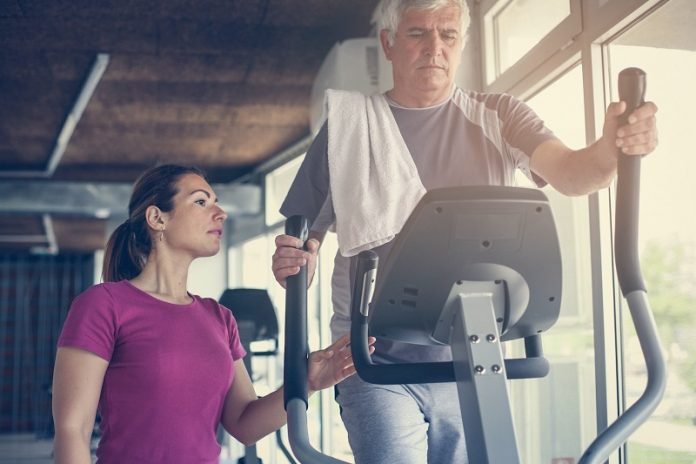
Ever had that feeling where you can’t remember where you left your keys or forget why you entered a room? We’ve all been there!
But don’t worry, a new study suggests that there’s a fun and easy way to boost your brain’s memory powers – and it’s as simple as staying active!
Exercise and the Brain – A Powerful Duo
Published in the Journal of Neurology Neurosurgery & Psychiatry, a study links regular leisure time physical activity at any age to better brain function in later life.
In fact, sticking to an exercise routine throughout adulthood seems to be the best way to keep our minds sharp and memories intact.
However, the researchers noted that the connection between physical activity and mental sharpness became weaker when factors such as childhood cognitive ability, income, and education were considered.
But don’t be disheartened, the findings still held significant value!
The Key to a Sharp Mind
Previous studies have shown that physical activity is somewhat linked to a lower risk of dementia, cognitive decline, and loss of mental sharpness later in life.
But it’s still a mystery whether the timing, frequency, or maintenance of leisure activities throughout life are key to preserving cognitive abilities.
The researchers wanted to figure out whether being active during specific ‘sensitive’ periods in life, or at multiple times, might be most beneficial.
Cracking the Exercise Code
To unlock this mystery, the researchers examined the connection between cognitive tests at age 69 and reported physical activity at different ages in 1417 people.
The participants were part of the 1946 British birth cohort study, and their physical activity levels were rated based on their engagement in leisure activities.
A score was assigned based on their activity level at different age points (36, 43, 53, 60-64, and 69), and a total score was created. The cognitive performance at age 69 was assessed using a variety of tests.
The Findings
The study found that being physically active at all five time points was linked to higher cognitive performance, better verbal memory, and faster processing speed at age 69.
Most interestingly, even moderate levels of physical activity seemed to be beneficial.
“Our results suggest that being physically active at any point in adulthood, even if it’s as little as once per month, is associated with better cognition,” say the researchers.
The strongest link was seen for continuous cumulative physical activity and cognition in later life, especially for those who were most active at all ages.
A Few Disclaimers
This is an observational study and, as such, it can’t confirm cause and effect. The researchers also noted limitations such as the study including only white participants and lacking details on exercise intensity, duration, or adherence.
Concluding Thoughts
However, the researchers concluded, “Our findings support guidelines recommending participation in any physical activity across adulthood and provide evidence that encouraging inactive adults to be more active, and encouraging already active adults to maintain their activity, could benefit cognition in later life.”
So, the takeaway here is simple – move it to remember it! Regular physical activity, whether it’s a walk in the park or a game of tennis, can help keep our brains sharp and our memories intact.
It’s never too late to start, and it’s never too early to keep going!
If you care about brain health, please read studies about low choline intake linked to higher dementia risk, and how eating nuts can affect your cognitive ability.
For more information about brain health, please see recent studies that blueberry supplements may prevent cognitive decline, and results showing higher magnesium intake could help benefit brain health.
The study was published in the Journal of Neurology Neurosurgery & Psychiatry.
Follow us on Twitter for more articles about this topic.
Copyright © 2023 Knowridge Science Report. All rights reserved.



